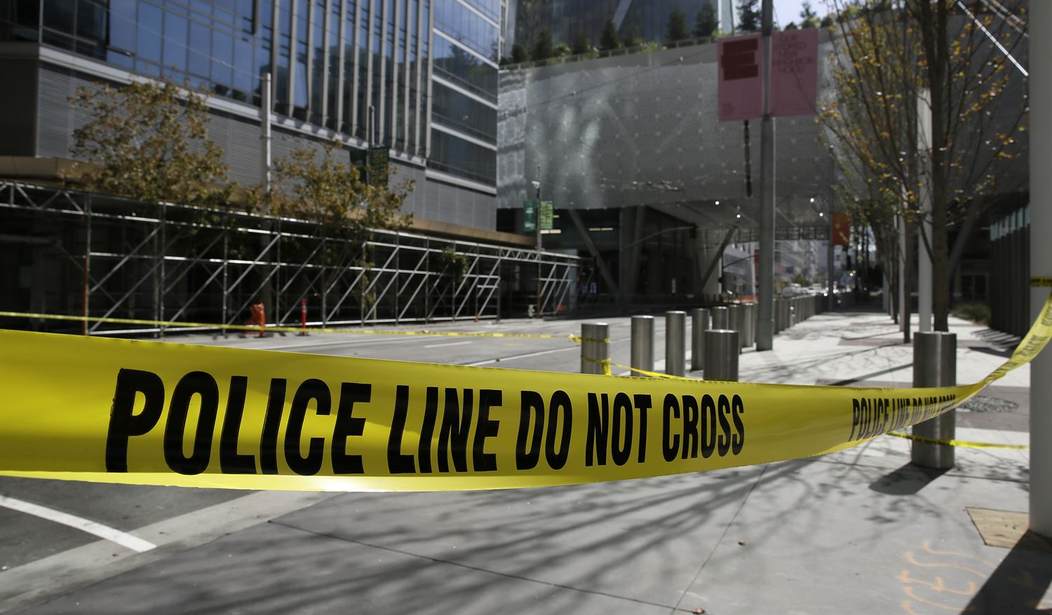Earlier this week I was really struck by an article published by the British paper The Telegraph describing the transformation that had happened in the Greater Manchester Police force thanks to the arrival of a no-nonsense Chief Constable named Stephen Watson.
When he arrived in the summer of 2021, GMP had been placed in “special measures” after failing to record 80,000 crimes – a fifth of that year’s total. Emergency 999 response times were the worst in the country, with serial warnings that it was failing domestic abuse and sexual assault victims.
Now, says Watson, every crime is investigated, emergency response times are among the best in England and Wales, arrests of domestic abuse perpetrators have doubled in a year and overall crime is down by 7.7 per cent. Since he took over, stop and searches have quadrupled to 46,029 in a year, a key reason, he believes, behind sharp falls in robberies, firearms offences and people presenting at hospitals with knife injuries. “It is about leadership and having an effective plan,” he says...
His plan was to shift the entire force from being “reactive” to crime to “proactively” pursuing and preventing it. “We pick up the phone, we get to people quickly, we make accurate records, we investigate all reasonable lines of inquiry. We bring people to justice,” he says.
One thing Watson doesn't wasted time on is progressive nonsense and social media trends. Instead, his focus is on dealing with every crime and signs of anti-social behavior that he believes lead to crime.
“There’s no doubt in my mind that if you don’t tend to anti-social behaviour, which is symptomatic of crime, eventually things will deteriorate to the point where you get embedded endemic, deep-rooted crime and anti-social behaviour.”
Watson's approach started with the officers themselves. His first act was to introduce a dress code, requiring everyone to dress sharply to create a sense of pride among his staff.
Greater Manchester was literally rated the worst police force in the country when he took over, 43rd out of 43. Now crime is down a police response times are up. GMP guarantees an officer is sent to every break-in. And still, Watson is pushing for them to be better, seeking to become the most improved force in the country for three years in a row.
And then a couple days after reading that, I came across a story about sideshows in San Francisco. Sideshows, alternatively called street takeovers, happen all the time in the Bay Area including last Saturday night. There were hundreds of people involved creating chaos, exactly the kind of anti-social behavior Stephen Watson was describing, but so far no one has been arrested. This KPIX report is great because it makes clear that other city's are dealing with this better. Even a random woman on the street knows what needs to be done:
The SF Standard also published a story which makes clear that there are ways to stop this but they require a forceful, coordinated response rather than the kind of reactive policing that, again, Stephen Watson in Manchester was trying to get away from.
In other jurisdictions, like San Jose and Oakland, when police respond ahead of time, officers stage tow trucks and set up a perimeter to stop anyone from leaving. Spike strips are thrown down to funnel participants through a checkpoint where arrests, citations and towing take place, explained one former officer...
When there is no intelligence, and a department is rushing to respond to an in-progress sideshow, it’s a different situation. “At that point you are just trying to mitigate the activity,” Ford said...
The department said it did not readily have data on arrests, citations or the number of impounded vehicles related to its efforts. But DataSF shows 22 separate sideshow incidents where police were called have occurred since January. (It’s likely that many other sideshows have occurred and dispersed without police ever being alerted.) In only five instances did police activity result in citations or arrests at those events, the data shows.
Why does this keep happening, because 80% of the time no one is arrested. And if you consider how many people turn out to these illegal events, the chances of any individual facing consequences in San Francisco is near zero. Indeed, that's why people are coming from other Bay Area cities to hold these sideshows in San Francisco.
One former officer says that San Francisco has become a destination for sideshows precisely because it does not stop them in their tracks like other jurisdictions, despite places like Oakland continuing to have a problem with sideshows.
“They are terrorizing people,” said the officer, but the department’s “primary focus is not to have conflict with anyone in the community, whether they are violating the law or not.”
This isn't complicated. Criminals gravitate toward an areas where law and order comes second to other priorities and away from areas where laws are strictly enforced. San Francisco needs a police chief like Stephen Watson who will get the officers into the streets, proactively dealing with criminals rather than belatedly coming in behind them to shoo them away without any consequences.
The same thing applies to a lot of the other problems the city has, from car break-ins to shoplifting to robberies to open drug sales. If you call the police and no one answers or no one shows up for hours, you are not going to solve the problem. Police need to do a lot more to raise the cost for criminals to do business in the city if they want things to improve.








Join the conversation as a VIP Member